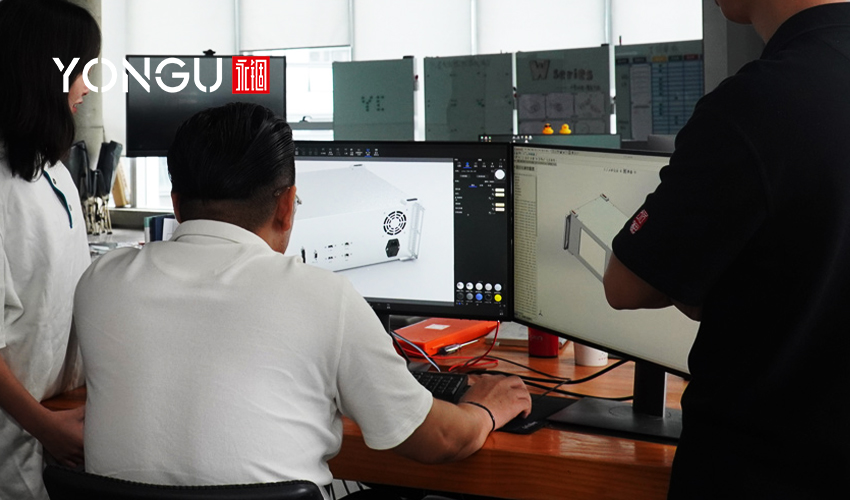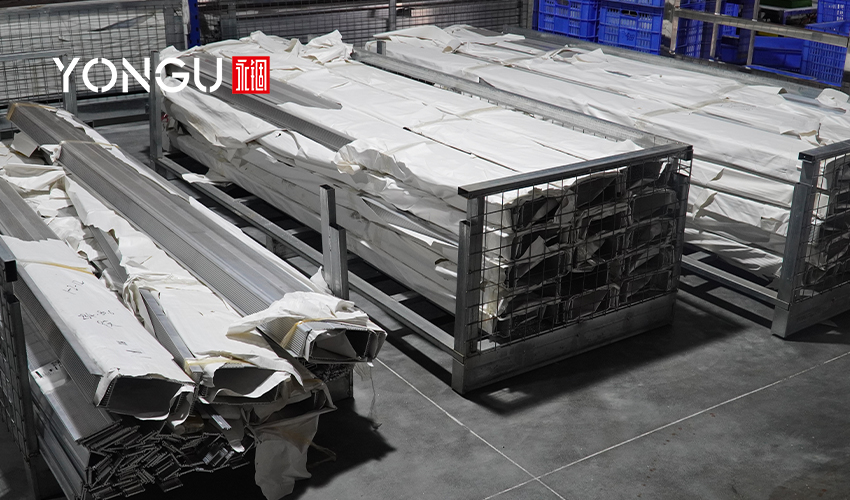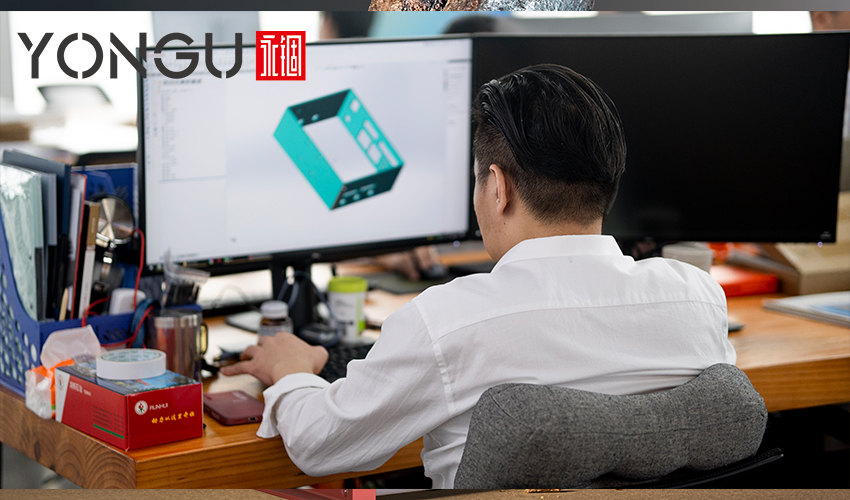When selecting a protective enclosing solution, it is essential to comprehend the functioning principles of the equipment that will be put in the enclosure, as well as the operating circumstances of the equipment. As a designer, it is essential to choose the enclosure that best suits your demands in order to prevent additional costs or effort in later phases. Therefore, selecting an appropriate enclosure early on in the design process helps save design costs and product assembly time, as well as product failures and claims.
With the following information, we will assist you in selecting an industrial enclosure in the most effective manner.

Application dimensions — size counts!
The size of the enclosure is determined by the minimum and/or maximum application dimensions. Consider if more components are likely to be added in the future and, if so, whether the dimensions of the enclosure will still be sufficient. If the size of the enclosure is to be modified, the whole product must be redesigned. This might result in additional design hours and a project delay.Smaller enclosures of the same material are cheaper than larger enclosures of the same material. However, assembly and installation of the components may be more difficult with a smaller enclosure, particularly if located outside. This may ultimately make the solution more costly.
Consider the material and gasket!
The material of the enclosure is in continual touch with the surrounding environment. The proper material protects the safety of the installed equipment and its users and prevents the possibility of incurring unnecessary expenditures due to unexpected malfunctions.
Industrial enclosures often consist of polycarbonate, ABS, GRP, aluminum, painted mild steel, and stainless steel. The application advantages may be considerably enhanced by selecting the appropriate material. Plastic, for instance, enables radio waves to flow through, making it ideal for electronic equipment applications that do not need an external antenna.
In addition to enclosure material, it is essential to consider the gasket. In terms of temperature range, the gasket is often the weakest link, and it is also a crucial component for keeping dust and moisture from entering the enclosure. Cost differences between materials may be substantial. Therefore, it is essential to consider the enclosure's desired characteristics in addition to its material of construction. Thus, you may affordably get an enclosure with a long lifespan.
Protection and impact – exercise caution!
The protection level is a crucial component of a functional enclosure. It is only specified for the enclosure and must be maintained throughout the installation process. It implies, for example, that the IP or NEMA rating of the cable glands used for cable entry must be greater than or equal to that of the enclosure. The NEMA rating in the United States and the IP rating in other countries specify the enclosure's resistance to dust and moisture. Typically, the more adverse the environment, the greater the necessity for protection. Cement plants, for instance, generate a great deal of extremely fine dust, hence a high protection rating is advised.In addition to IP and NEMA ratings, it is vital to determine the impact resistance of enclosures. IK rating normally varies from IK06 to IK10. While a higher level of security is always a safe bet, it usually comes with a higher price tag. If you want to know about IP and NEMA ratings, check out this article here.
Choose wisely!
To get the optimal cost-to-quality ratio for your enclosure, you must comprehend the environment in which the final product and interior components are employed. In this manner, you may pick a durable enclosure with a long lifespan that will safeguard your electrical equipment while saving money.
Select the provider that offers the most customization options

When choosing the provider, you should see the best provider in the market. The one who has an extensive experience in the field and has excellent after-sales services. Therefore, Yongu has been working continuously to enhance the customization and after-sales services. By researching clients' specific needs, Yongu provides enclosures that meet those needs at an affordable price.
Our team of experienced engineers utilizes the latest CAD and FEA technology to design enclosures that are both functional and cost-effective. In addition, our in-house prototyping and testing capabilities allow us to quickly and efficiently verify the performance of our designs. As a result, Yongu is able to provide its clients with enclosures that are optimized for both function and value.
Whether you need an indoor or outdoor enclosure, Yongu has the right solution for you. With Yongu, you can be confident that your equipment will be protected from the elements and safe from tampering.
For further information and customized product of your requirements, please follow our FACEBOOK for more updates and informations.
You can also contact us at +86 13326782625 or write us [email protected].



